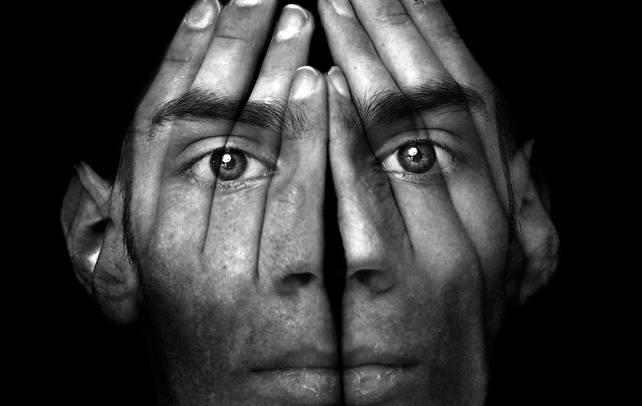Overcoming Stage Fright

Stage fright is a typical manifestation of a Social Anxiety Disorder (SAD or SAnD) where a person is terrified of social embarrassment, charientism and overall disgrace in public by anticipating possible goof-ups. It is often associated with blushing, panting, sweating, stammering, tremor in limbs, dry mouth and many more signs of physical vulnerabilities along with extreme mental weakness. There is no need for the arc lights or cameras to be on to get you fumbling. Remember how as a child, a class project demo in front of your peers created ‘butterflies in your stomach’. What if I can’t recall the correct terminology at the right time? What if my mind goes blank and I can’t remember anything? What if the classmates judge and humiliate me? What if they stop considering me smart enough to be part of the group? All these questions smeared with self-doubt have bothered students for eons. Glossophobia (fear of public speaking) is a very regular phenomenon where a person is comfortable of performing and even speaking only if he is under the impression that nobody is watching him. Remove that ‘ignorance is bliss’ veil, and he will feel like his pounding heart will rip apart.
How To Overcome Stage Fright
You will be happy to know that only the mentally fragile individuals do not suffer from a social phobia. Any brain subjected to enormous amount of pressure cannot withstand the demands self-projection in public platform. However, you can reduce or even eliminate performance anxiety if proper measures are taken as discussed below:
Stop Living In Your Imaginary World
One reason why your blood pressure soars to abnormal level in front of people is because of the way your mind is conditioned to give undue authority to every other individual to judge you. Stop imagining that others are in a much better position to judge you or that they can do any better in a similar situation. Instead, let your eyes wander till the last row as if you are in control and assessing your audience. That will ease out your preconceived notions of the criticism. Living in the reality and living in the present as well are two cardinal principles you need to follow if you want to overcome stage fright.
Make Your Public Appearance Interactive
One of the most effective ways to counter your fears is to make others involved in your fear. Making your audience a part of your performance. That will not only build a rapport, but will also lift your sagging confidence and at least you will not consider yourself a misfit in the scheme of things. In fact, there is a very strong chance that your presentation will be appreciated by your audience once you make it a more intimate experience: “So how do you rate this new concept? Boring? Impossible? Fascinating? I also thought so”.
When Nothing Works, Humor Makes It Work
Add a dash of humor in your public encounters and the audience will lap it up. However, to establish that connection, you have to ensure that it doesn’t appear as a forceful cover-up attempt. You can even tell the audience and laugh about it if your mind goes blank. Be transparent with your exchanges. No mature audience will revel street-smartness, but they will always be moved with good honest presentation. If you are being able to make people see the lighter side of it without trying too hard and if you are able to tell yourself that heaven will not fall if one event goes wrong, you will definitely come out of it with flying colors.
Do Not Focus On Exact Word
If you have forgotten an apparently important word or terminology, don’t press the panic button. It’s absolutely fine and in fact an opportunity in disguise wherein you will be able to explain the concept to the people without being entangled in jargons. Never wreck your brain if you forget one thing or even a complete concept, just try not to be disassociated with the overall topic. All the loose threads will take care of themselves if you don’t lose it in the middle by just attempting to recollect what you consider as utmost important.
Get The Right Attitude
If you are suffering from social anxiety disorders, chances are high that you have either great expectation from yourself or you are excessively self-effacing and socially withdrawn and hence, weary of public scrutiny. Do not let either of these self-defeating thoughts to get the better of your actual representational ability. Never think that audience will only laud a flawless presentation. Audience will only like something that strikes a chord with them either as a concept or as a presentation technique. You cannot control the ramification the topic is going to create, but by being realistic and true to your persona, you can always strike that right equation with the audience. Try not to think yourself too important. In the grand scheme of things, none of us individually matters. Forget our stage acts!
Always Make Eye Contact
Even if you think that you are going to experience the shock of your life, don’t turn away your eyes from the audience. This will not make you feel awkward and will not certainly make you forget your subject. Keep your focus on the task at hand, but most of the times try to maintain that visual coordination, which won’t just highlight your confidence, but will also let you know when to shift from one topic to another. You will miss several intricate cues if you do not look often at your audience.
Address People In A Friendly Way
This will not just act as an instant ice-breaker, but will also allow you not to feel intimidated by the situation. Remember, you can be friendly and can still deliver a formal speech. All depends on your voice modulation and confidence level.
Move On
Keep on talking and if you get stuck somewhere, try to sail through that moment by either involving the audience or referring to your notes or using humor (as appropriate in the given situation). Don’t let your mind linger on what has happened. In almost all probability, nothing has happened and only it’s your imagination that has run riot. Relax, take a deep breath and carry on.
Don’t Use Medications Without Doctor’s Advice
Lots of stimulants and drugs are available in the market for social anxiety sufferers. Do not indiscriminately use it at all cost without consulting a very good neurologist or neuro-psychiatrist. They will do more harm than good if consumed without proper observation.
Come Out Of The Shell
Try to meet as many people as possible and try to hold a conversation at social-dos or visit to relative’s place or other important occasions. Chatting on the internet and getting interactive at the social networking sites will not do any good so far as public speaking is concerned. Do not avoid face-to-face conversation. As soon as you will get some willing ears, your confidence will get the needed boost. As an icing on the cake, if you read a lot, you will automatically have a lot of topics to discuss and will very easily be able to earn loyal audience.
Oscar-Winning American actor Kim Basinger suffered from many social phobias. She could not even talk properly in her Oscar receiving speech. She later underwent a psychological therapy that helped her. Actor Laurence Oliver confessed in his book to have suffered from social phobia for almost five years. American singer, Donny Osmond, suffered from a severe stage fright and also experienced panic attacks during a performance. Cognitive Behavioral Therapy helped him to come out of it. If seasoned performers can experience stage fright, it’s not an anomaly if your brain also has some imbalance of neuro-chemicals and hyperactivity in parts resulting similar sensation. However, it’s in your hand whether you will get engulfed in the vortex of negativity surrounding it or you will choose to conquer stage fright by facing it more and more.












